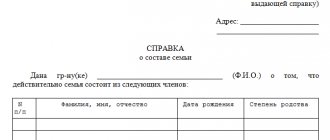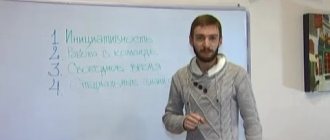Home/HOA/Checking the activities of the HOA
The abbreviation HOA stands for homeowners' partnership. It is represented by a non-profit legal entity carrying out management activities in relation to the housing stock. This indicates that the goal of creating an HOA is not to make a profit, but to create conditions for satisfying the non-material needs of the members of the partnership. Like any legal entity, an HOA is subject to verification measures by various higher-level structures.
Types of inspection of HOA activities
For your information
, the HOA is a multifunctional organization. Today, the partnership conducts 2 areas of activity - economic and financial. The purpose of conducting an inspection of the HOA is to identify the compliance of all activities with established standards and to determine the legality of financial and economic work.
Checking the operation of an HOA involves an extensive classification. According to the planning, it happens:
- planned, carried out regularly, in accordance with the established schedule (usually the frequency is once a year);
- unscheduled, carried out when certain circumstances arise.
Depending on the persons conducting the HOA inspection, it can be classified into the following types:
- internal - initiated by members of the HOA and structures interacting with it;
- external – carried out by third-party monitoring organizations.
Depending on the completeness of coverage, the verification activities of the homeowners association may be as follows:
- complete: an audit of all documents is carried out; traditionally, this measure is relevant before the visit of employees from important authorities (prosecutor’s office, housing supervision);
- partial: include a minor area (for example, declarations).
Attention
Each type of HOA audit has its own characteristics and nuances.
- Internal. Regulated by the norms of the Housing Code of the Russian Federation. To implement this, an audit commission is created. Within the framework of each partnership, the Regulations are approved, which determines the rights and responsibilities. The purpose of the HOA inspection is to assess the current financial and economic work of the organization and its compliance with the charter.
Tax office. Despite the fact that the HOA does not have the main goal of making a profit, Art. 246 of the Tax Code of the Russian Federation indicates that the homeowners association acts as a taxpayer, and therefore undertakes to maintain tax reporting. Control is initiated by the tax service, which checks the correctness of filling out declarations, maintaining reporting documents, and the completeness of providing information on taxes paid.- Inspection of the HOA by the housing inspection. The housing committee is in charge of the review. The partnership is notified in advance of the event. Responsibility for detected violations of the law is provided for in Art. 7.22 Code of Administrative Offenses of the Russian Federation “Violation of standards for the maintenance and repair of housing stock” and 14.4 “Provision of low-quality services”, clause 7 of Art. 157. Housing complex of the Russian Federation.
- Inspection of homeowners associations by Rospotrebnadzor. Consumer protection in this regard is stipulated in Art. 4 and the law on STDs. Therefore, in the event of poor-quality services, owners are given the right to file a complaint with this body, which will carry out inspection activities in the HOA.
- Prosecutor's check. Typically, this type of activity is carried out without any special warning, most often in the course of receiving complaints from residents about the unfair work of the governing body.
How to apply to court?
Appeal to the court is considered a last resort and is practiced in cases where other steps have failed to resolve the conflict situation. Claims are filed in court if:
- a dispute is resolved regarding the allocation of a part of the common property and assigning it to an individual owner;
- HOA members are not satisfied with the decisions made by the chairman;
- the points agreed upon at the collective meeting are not fulfilled;
- there are discrepancies regarding the implementation of repair work;
- financial claims are made against board members;
- poor quality services are provided.
The list of reasons is not limited to the listed items. To go to court, the plaintiff must draw up a statement of claim. It is drawn up according to the same principles as a complaint, but requires more thorough and thoughtful justification.
If other authorities refused to consider the claims, this only means that the applicant was unable to prove his case. When filing a claim, it is important to correct this omission and prepare as seriously as possible.
It will no longer be possible to file a second claim with the same requirements, but it can be appealed. To satisfy the claims in court, the plaintiff is obliged to provide documentary evidence of the facts stated in the claim.
Witnesses may be brought in, independent examinations may be ordered, and photographs and videos may be attached. The more justification a plaintiff has, the less likely he is to lose.
Before becoming a member of an HOA or deciding to create such a form of management, it is worth studying the pros and cons of the organization and its structure. We also encourage you to read our other articles on homeowners associations:
- Financial and economic activities and reporting.
- Articles of association.
- Elimination of this form of management.
- The structure of the HOA association and its differences from housing cooperatives and from TSN.
Debt collection
If members of the HOA board were found guilty of unlawful actions, monetary compensation can be recovered from them. The losing party pays the legal costs. If the plaintiff does not immediately register this point in the claim, then within three years he may file another claim for collection.
Other material claims are compensated on the basis of a court decision, which indicates the amount of material and/or moral damage and the period for its repayment. If the HOA does not comply with its requirements, the injured party may turn to the bailiffs.
The FSSP formalizes legal proceedings, and the bailiffs use legal levers to collect the debt.
Each member of the HOA has the right to defend their interests in any legal way. If the chairman of the partnership cannot resolve the conflict situation, or does not want to do so, then the owner or tenant of the apartment files a complaint with the Housing Inspectorate, Rospotrebnadzor or the Prosecutor's Office. If these authorities refuse, you should go to court.
Who can initiate a partnership audit?
Responsibility for poor performance of functions or inaction always falls on the shoulders of the chairman of the HOA. But the audit can also be initiated by other interested parties:
- chairman of the HOA;
- owners of residential premises;
- members of the partnership.
Regardless of whether a person belongs to the HOA, as well as whether he holds a certain position in the homeowners’ association, a citizen has the right to order an audit. But, as practice shows, most often the initiator of the procedure is the chairman.
Grounds for checking the HOA
Attention:
Homeowners' association inspections are carried out as a planned event or as an unscheduled process based on complaints from residents or third parties about the failure to provide or poor-quality services.
The idea of checking the HOA must comply with a number of basic principles:
- the chairman's interest in conducting the audit;
- the possibility of holding a meeting of HOA members;
- the likelihood of determining the frequency of reporting from the chairman more often than specified in the law;
- the likelihood of forming a criminal case against officials based on the results of the inspection.
It follows that the purpose of the audit plays a huge role. The goals are:
- determination of the fact and magnitude of discrepancies between reporting and actual materials;
- finding errors in the process of maintaining accounting documents;
- identification of facts of deliberate violation of the law.
The general grounds for holding such events appear in Part 2 of Art. 10 Federal Law No. 294, as well as in part 4.2 of Art. 20 Housing Code of the Russian Federation. In this regard, during the implementation of activities the following issues are resolved:
- procedure for creating an HOA;
- mandatory requirements for statutory documentation;
- procedures for concluding contracts for the supply of services with RNO;
- violation of the terms of the agreement and liability;
- procedure for using the resource base.
This is not the entire list of tasks that one or another audit can solve, but they are the main ones.
Tips from the experts
Experts advise:
- Clearly and clearly formulate goals and objectives before creating an HOA.
- It is mandatory to register activities to avoid penalties.
- It is recommended to keep reports correctly and competently.
- If you do not have an accountant, you should contact specialized centers or services for help.
- It is strictly prohibited to conduct any commercial activities.
These rules will help you avoid common mistakes.
Based on numerous reviews from citizens, it is clear that HOAs have their positive and negative sides. The expenditure of funds is strictly regulated by law. At any time, any person can complain about the partnership to the authorized body. There is also the possibility of changing management and accountant.
Video about the responsibilities of an HOA:
See also Phone numbers for consultation Oct 24, 2021 Victoria M. 772
Share this post
Scheduled and unscheduled audits
The subject of verification activities carried out by control and supervision bodies is noted within the 11th paragraph of the Regulations on State. lived supervision No. 493 dated June 11, 2013. And in accordance with Federal Law No. 294 “On the Protection of the Rights of Legal Entities and Individual Entrepreneurs”, scheduled and unscheduled inspections can be carried out.
- Scheduled inspections of HOAs are carried out on the basis of annual plans and schedules developed by state control bodies. Traditionally, these measures are carried out once per year, unless otherwise provided by regional legislation.
- Unscheduled measures are carried out on the basis of the grounds provided for in Part 2 of Art. 10 Federal Law No. 294, as well as Part 4.2 of Art. 20 Housing Code of the Russian Federation.
Please note:
Both types of HOA inspections can be documentary and on-site. In any case, the time period for conducting them cannot be more than 20 working days.
Rights and obligations of the organization
In the context of a nonprofit organization, governance occurs primarily through an organizational structure called a board of directors. In this way, the board of directors of an organization ensures that the management of activities and operations is consistent, efficient and effective.
Article 138 of the RF Housing Code provides a list of rights and obligations.
| Rights | Responsibilities |
| Collect funds from homeowners and spend them for specific purposes. This also includes the creation of estimates, work schedules, and quality control schedules. | Comply with the requirements and rules specified in Russian legal norms. |
| Conclude various contracts and agreements within their competence | Do not engage in commercial activities. |
| Conclude transactions that do not contradict the activities of the partnership. | Fulfill your obligations undertaken on the basis of contracts or agreements. |
| Transfer property for temporary use. | Maintain order and safety of residents' common property. |
| Maintain accounting records in accordance with federal laws. | |
| Submit reports within the deadlines specified by law. | |
| Monitor the progress of work. | |
| Apply to authorized bodies on various grounds. |
These are the basic rights and responsibilities of individuals managing an HOA.
Types of homeowners association reporting
The Partnership, acting as a responsible legal entity, undertakes to annually report on the results of its own activities. A request for a HOA report can be created not only by premises owners, but also by employees of higher authorities.
- Internal reports . They are provided to the owners of the premises within the framework of the annual meeting held on the basis of Art. 45 of the Housing Code of the Russian Federation in the second quarter of the year following the reporting one.
- Report of the chairman of the HOA. It is based on information about the work that has been done and on the fulfillment of the obligations established within the job description. Includes the preparation of estimates, control measures regarding the fulfillment of contract terms, accounting, tax reporting, hiring and dismissal of employees, etc.
- Board report. This is necessary in order to provide the chairman with assistance and support in fulfilling his duties in managing the apartment building. Art. 151 of the Housing Code of the Russian Federation states that the management of the HOA has the right to dispose of collective funds on the basis of the approved budget.
- External reports. As a non-profit organization, the partnership undertakes to comply with applicable laws by providing information about the results of its work. In particular, we are talking about fin. reporting (balance sheet, report on the intended use of funds), tax reporting, statistical reporting (on the number of employees, accounting measures).
IMPORTANT
Within the framework of clause 10 of Art. 161 of the Housing Code of the Russian Federation establishes an obligation to ensure open access to data on the activities of HOAs.
Who can request this procedure?
Who can check the activities of the HOA? to initiate an audit of the financial activities of the housing association :
- members of the audit commission;
- apartment owners and residents of a building belonging to an HOA;
- initiative group of partnership members;
- elected local government bodies;
- governing bodies.
The board of a housing association can order an audit from private auditing firms to identify and correct its own errors with little experience in financial activities , or with a large accounting staff to monitor its activities.
If there are suspicions or indirect facts of violations in the activities of the board, some of the owner-members of the partnership may create an initiative group to audit the activities of management. In this case, the audit is carried out, as a rule, by the participants of such a group themselves .
Attention! Each member of the housing association has the right to familiarize itself with all financial and reporting documents of the organization (clause 3, article 143.1 of the Housing Code of the Russian Federation).
If a resident of the house has suspicions that the management of the partnership is violating the legislation of the Russian Federation , then he can initiate a prosecutorial investigation by writing a corresponding complaint, regardless of his status as a resident (owner, tenant, etc.).
Elected authorities have the right to initiate parliamentary inspection of any legal entities, including housing associations, at the request of voters.
Inspection of HOAs by the Audit Commission
The Audit Commission is a permanently functioning elected body. Its task is to exercise control over the conduct of legal, financial, and economic activities of the homeowners’ association. In accordance with Art. 150 of the Housing Code of the Russian Federation, its creation for the implementation of control is mandatory. Legal regulation of activities is carried out on the basis of Chapter. 14 Legal status of HOA members, approved by the general meeting of members.
Attention
Any member of the HOA can be elected to the RC, but he must create a special letter of request.
What is an audit?
An inspection (or audit) is understood as a complete audit of the financial activities of an organization for compliance with its statutory goals. The audit method can be used to determine:
- legality of the operations carried out;
- the feasibility of the method of their implementation;
- compliance of actual expenses incurred with the planned estimate;
- legality of sources of income on the balance sheet of assets;
- possible mistakes made by accountants;
- compliance of financial documents with the rules approved by the Ministry of Construction.
A planned audit of a housing association must be carried out by its elected audit commission every calendar year , presenting an audit report to a meeting of residents-members of the HOA (part 1 of paragraph 3 of Article 150 of the Housing Code of the Russian Federation).
An unscheduled inspection is carried out by housing supervision authorities or the prosecutor's office .
In order to avoid large fines or suspension of activities as a result of visits from various government supervisory authorities , the board of the housing association turns to a private auditing firm to conduct a preliminary audit.
Based on the results of the audit, employees of the audit firm can point out to the accountant and the chairman errors made during accounting, as well as ways to eliminate them.
HOA audit report
The document is drawn up by employees of the auditing organization. The text of the HOA audit report must necessarily contain the following data:
- name of the housing association;
- the time period during which the inspection was carried out;
- areas that were tested;
- errors and shortcomings identified during the event;
- possible ways to eliminate them.
The act acts as a confidential type of documentation and is drawn up in two copies, respectively, for the customer and the executor of the HOA inspection.
Inspection of HOAs by the tax office
Although the HOA is a non-profit organization, it is not exempt from replenishing the state treasury by paying taxes. In relation to homeowners' associations, as in relation to any legal entities, scheduled and unscheduled inspections (on-site and desk) may be carried out by the tax inspectorate. During their implementation, the tax reporting of the HOA is reconciled, errors and inconsistencies are identified in it, responsibility for errors or failure to provide papers is determined.
The purpose and objectives of the HOA
Nonprofit organizations exist primarily to provide assistance or resources to target audiences with special needs. They typically serve public purposes, such as enriching the lives of people in the community, and receive special considerations in terms of taxation, legal status, and accountability.
A nonprofit organization is mission-driven, which requires management and the board of directors to set goals aimed at achieving the organization's stated mission.
Strategic objectives focus on the services provided to its target market. This requires identifying the needs of the community concerned and developing programs and projects to meet those needs.
Audit of HOA
Before the audit procedure, all members of the HOA are notified of this. Any person interested in an audit and initiating it undertakes to undergo the following activities:
- familiarization with the main provisions of the charter document of the HOA;
- appointment of a meeting on the basis of which a set of verification works will be carried out;
- if necessary, raise an issue related to changing the procedures for assigning audits;
- familiarization with the final provisions provided by the professional auditor;
- organizing another meeting if any errors were found during the inspection, the deficiencies found will be discussed and certain decisions will be made.
Additional information
The procedures and other nuances of holding a general meeting of a homeowners’ association are reflected in the current legislation - Art. 145, 146 Housing Code of the Russian Federation.
Schemes for misappropriation of money by an HOA accountant
- Utility payments are collected from owners in cash, but do not reach the current account or are not received in full. Owners find out about this only when they receive messages about non-payment from service organizations. By this time, the accountant usually quits. Example: Case No. 1-95/2020, the verdict in which was passed by the Ketovsky District Court of the Kurgan Region on May 26, 2020.
- Money from the HOA's current account is simply used to pay for the accountant's personal needs. This scheme is most likely if the chairman of the HOA trusts him with a flash drive with his electronic signature. Example: Case No. 1-280/2017, the verdict in which was passed by the Oktyabrsky District Court of Novosibirsk on 10/04/2017.
- Relatives and acquaintances of the accountant are included in the staff and supposedly perform some kind of work. Their salary is appropriated by the accountant, but no work is performed. Example: Case No. 1-16/2018, the verdict in which was passed by the Kirovsky District Court of Samara on February 19, 2018.
- Money is transferred by the accountant to the account for the purchase of material assets that are not actually purchased. To write off the debt from the accountable entity, fictitious procurement documents are submitted. Or valuables are acquired that are actually used for personal purposes. Example: Case No. 1-1300/19, the verdict in which was passed by the Kurgan City Court of the Kurgan Region on September 3, 2019.
Cost of HOA audit
There are no specific tariffs for the cost of HOA audit services in the legislation or in any specific regulations. Each situation is subject to individual assessment and depends on the complexity and scope of the proposed activities. Traditionally, as practice shows, the size of the remuneration that auditors ask for is in the range from 25 to 70 thousand rubles. An important role is played by the urgency of the implementation of measures and the qualification level of the expert.
Homeowners association inspection by housing inspection
The State Housing Inspectorate is an independently functioning structural unit of the system of executive authorities. The purpose of its existence is full and comprehensive control over the observance and provision of the rights and interests of citizens in the course of providing housing and communal services to the population.
In relation to HOAs, the housing estate has an extensive list of powers:
- carrying out scheduled inspections and activities at the request of residents;
- control of the appropriate fulfillment of the obligations of the HOA in relation to the operation of the housing stock;
- verification activities regarding documents and conducting a full analysis;
- monitoring the general condition of an apartment building and the territory adjacent to it;
- carrying out administrative work for legal support of a number of technical aspects.
The entire list of powers that this structure has is contained in Government Decree No. 493 of June 11, 2013.
Other types of work
Among the important responsibilities of the HOA are the following activities:
- Rational use of the financial fund, directing funds to the needs of the building.
If the members of the board cannot cope with this function, the owners, if there is evidence of violations, can raise the issue of reviewing the candidacies of the chairman and other employees, since the competent management of funds is the fundamental purpose of the HOA. All funds received when residents pay assigned fees must be used to meet current expenses and maintain the operational characteristics of all elements of the structure, including elevators and technical devices. - Monitoring compliance with the rules of operation of non-residential assets.
Board members must ensure that public premises are not only used for their intended purpose, but also maintained in a clean, tidy manner. With the consent of the remaining residents, some premises can be rented out. In this case, it is necessary to conclude an agreement that does not allow illegal activities or damage to the structure during the operation of the leased property. - Carrying out construction work as needed, using available funds from the fund. Often, decisions on the construction of additional facilities and restoration of old ones are made at a general meeting of residents. The initial estimate is drawn up by the chairman, members of the board or persons responsible for this (how to correctly estimate the income and expenses of an HOA?).
- Timely cleaning and cleaning of premises. HOA employees must not only maintain order in all objects owned by the cooperative on a daily basis, but also carry out seasonal work.
- Cleaning the area adjacent to the house. The board's responsibilities include hiring workers to systematically clean roads, sidewalks, and special areas, including parking and playgrounds.
Scheduled inspection of HOAs of municipal housing control
Federal Law No. 93 of June 25, 2012 “On Amendments to Legislative Acts of the Russian Federation” related to issues of state supervision introduced the concept of municipal housing control. It is usually understood as the activities of local bodies that have the authority to organize and carry out inspections on the territory of certain entities to ensure that legal entities comply with the norms of the Housing Code and other legislation. In Art. Section 4 of this document describes the procedure for implementing control measures. The basic standards of implementation are reflected in Federal Law No. 294 “On the protection of the rights of legal entities and individual entrepreneurs” and Art. 20 Housing Code of the Russian Federation.
Who controls the activities of the housing association?
The activities of the governing bodies of the housing association can be monitored by the following authorities :
- tax office;
- housing supervision department;
- prosecutor's office;
- audit committee;
- Labour Inspectorate;
- control commission of residents-members of the partnership.
Tax authorities monitor the correctness of filling out tax returns and the correct distribution of income and expenses under different taxation systems, as well as the completeness of tax payment by employees.
Important! Housing supervision authorities inspect the activities of the HOA management for compliance with housing legislation.
Including:
- the legitimacy of the procedure for creating an HOA;
- correctness of the articles of the charter;
- reliability of the minutes of general meetings;
- legality of the selected governing bodies and auditor;
- compliance of the activities carried out with the statutory goals.
The prosecutor's office can check for possible violations of a criminal nature : bribery, embezzlement, etc.
Employees of the prosecutor's office have the right to enter the premises of the HOA management and seize any documentation without prior notification of the inspection. The tax service has the same rights.
The audit is an internal tool for monitoring the economic activities of the board , since the auditor is elected at a general meeting from among residents who enjoy authority and cannot combine his activities with work on the board (clause 1 of Article 150 of the Housing Code of the Russian Federation).
Unscheduled inspection
If the Housing Inspectorate or another body has received information that requires verification in the form of an appeal or application, this indicates that the process of unscheduled inspection activities regarding the HOA will soon begin. An unscheduled inspection of the HOA can be carried out in the following situations:
- when the regulatory authority does not have sufficient information about the person who committed the violation;
- if there is not sufficient data on the fact of violation of mandatory requirements.
There is no need to prepare any documents in advance to prepare for this procedure. The inspector may request only some clarifications - additional materials and information. If during the preliminary inspection violations are identified, they will be followed by unscheduled work, which is prescribed in parts 3.2 and 3.3 of Art. 10 Federal Law No. 294.
Grounds for inspection activities
This procedure may be planned or unscheduled . In the latter case, it is implied that the partnership provides low-quality services.
Federal Law No. 294 of 2008 “On the Protection of the Rights of Legal Entities...” reflects the general grounds for conducting verification activities.
In the case of a planned measure, the basis is the sequence of actions determined by the authorized body. The partnership is warned about such an event in advance.
For unscheduled inspections, the basis is a statement of poor quality services, a violation of the law.
Inspection of HOA by the prosecutor's office
Conducting inspections of the HOA by the prosecutor's office is an extreme measure that takes place after violations are identified. The most serious consequence of such an inspection is the liquidation of the HOA and bringing it to criminal and administrative liability. According to Art. 141 of the Housing Code of the Russian Federation, the liquidation of an HOA is carried out within the framework of the procedure established by the Civil Code.
Attention
Based on Art. 61 of the Civil Code of the Russian Federation, an HOA is subject to liquidation by the court if there are violations of the law of a particularly gross nature that are irreparable. Prosecutors, in the course of discovering such phenomena, make an appeal to the court with appropriate statements of claim for the liquidation of the HOA.
Reasons for initiating a criminal case
There are factors based on which you can apply to initiate a criminal case:
- Violating the rights of residents or performing actions that do not comply with the law. First of all, the court considers cases in which the actions of the board and other employees of the HOA caused significant harm to the residents of a multi-story building or caused losses for the owners.
- Conducting officially unregistered activities. In connection with non-payment of taxes on income received, liability arises for all persons related to the offense.
When does the HOA bankruptcy procedure begin?
Bankruptcy is one of the forms of liquidation of an HOA. The right to recognize the fact that the partnership is unable to fulfill its immediate responsibilities rests exclusively with the arbitration court during the investigation. The interim manager analyzes financial and economic activities, holds meetings with counterparties and determines the source of the debt, and then draws up a report, the purpose of which is to identify ways to improve the financial situation. The main reason for bankruptcy is the debts of the HOA to the RSO and the impossibility of solving the problem on its own.







